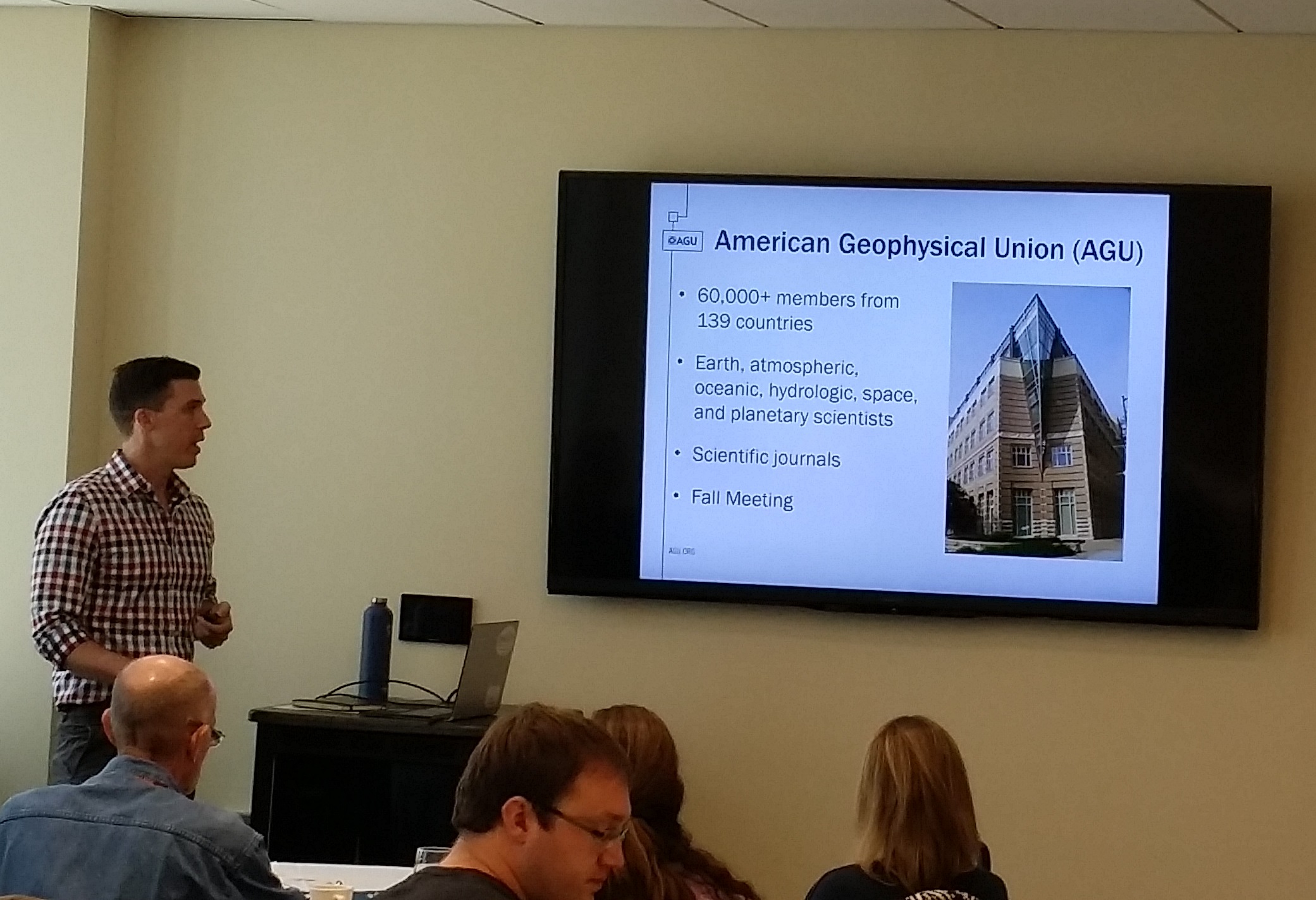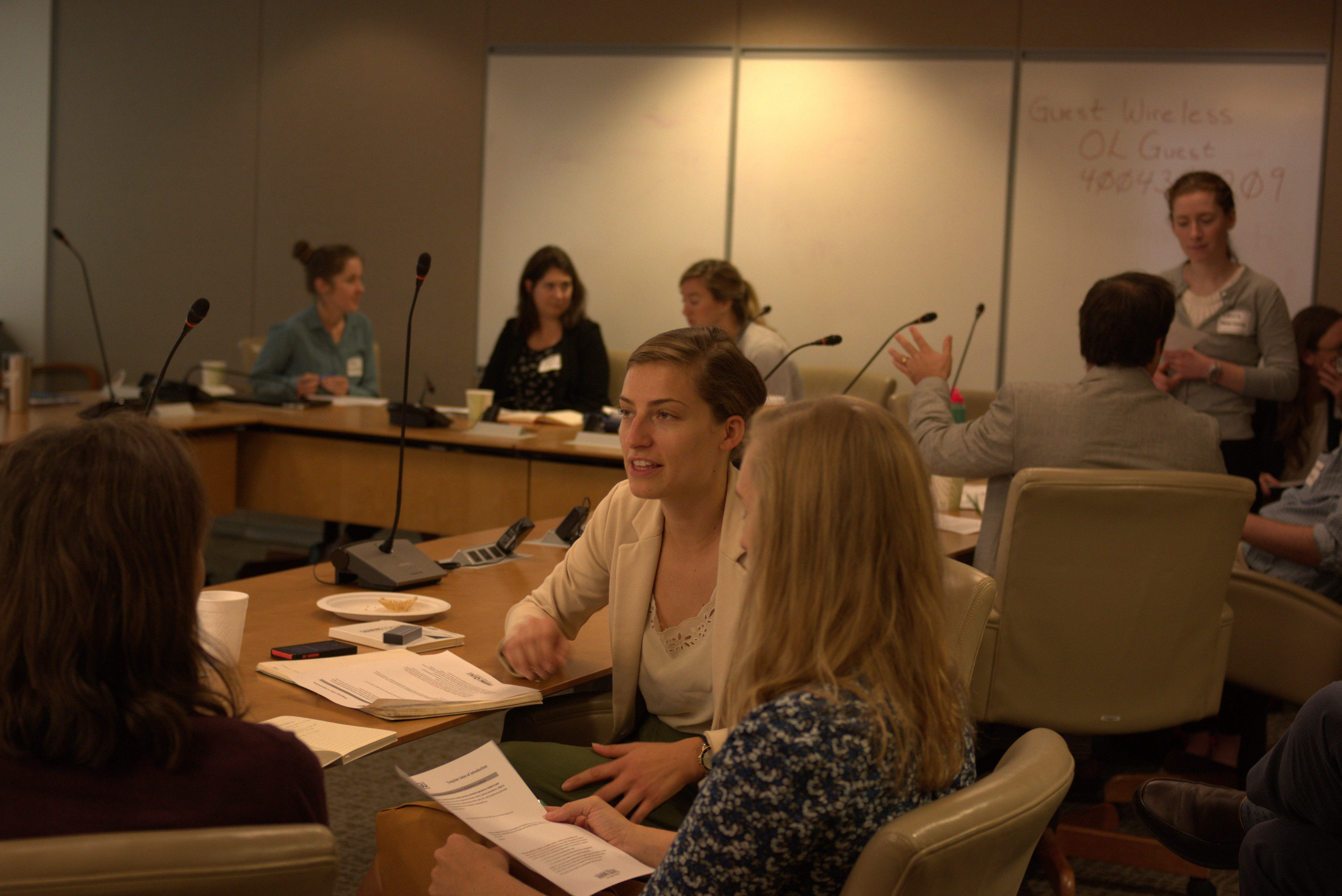16 January 2017
The need for action through scicomm
Posted by Shane Hanlon

Running a workshop at Colorado State University.
By Shane M Hanlon
“What do you do?” This is a question that I’m asked almost daily as a DC resident where interest in one’s profession is only surpassed by interest in politics. But back in 2010, when I was a 2nd-year PhD student, I was not used to this question. I had successfully avoided (i.e. didn’t try) making friends outside of my program during my first year, so when I was introduced to a new group of non-scientific folks, they naturally asked me what I did. I didn’t know what to tell them. “Well, I uh, research how amphibians morphologically respond to agrochemicals and how those responses subsequently alter host-pathogen interactions post-infection.” Yeah, I was pretty awful at communicating my science. But, from those disastrous beginnings, I have forged a career in not only sharing my own science (I still LOVE talking about amphibians and reptiles) but also helping others share their research with any sort of audience.
I started working at AGU in 2015. While I’m an ecologist by training, the opportunity to help others be better communicators really spoke to me. I remembered how I initially struggled with communicating my work. I also saw firsthand the frustration from fellow scientists whose work has direct public and policy implications and who wanted to share their work outside of research circles, but didn’t know where or how to do so. That’s the role of Sharing Science, to provide scientists with the skills and opportunities to share their science with any audience.
Recently there have been new/renewed calls for scientists to engage with diverse audiences. Many of the scicomm “champions” are renewing their calls, which is wonderful, but perhaps more encouraging is the increased number of scientists who want to start sharing their science for the first time. And whether you’re a scicomm expert or completely new to the game, we’re here to help.

Knauss Policy Fellows at one of our workshops in 2016.
There are loads of scicomm training resources and opportunities out there…if you know where to look. There are entire programs devoted to science communication and policy, various associations, entire companies that live & breathe scicomm, and even peers that are always happy to share their wisdom. At AGU, there’s Sharing Science.
The Sharing Science program is designed to provide scientists with the tools and skills that they need to share their science with anyone. If you’re interested in communication, policy, and/or outreach, let us be a resource for you. We have a network of AGU members who share ideals associated with engagement and put on workshops, webinars (open to anyone), networking events, and other activities to help promote science sharing beyond research circles. If you’re not an AGU member, we still have a ton of resources freely available on our website. Giving a talk to a community group? Being interviewed by a journalist for a manuscript that just came out? Meeting with a policymaker? We can help with all that and more.
Scientists, by definition, are not bad communicators. It is a stereotype that has been hoisted upon us that some have embraced and some have kicked. However, regardless of communications abilities, we could all use some help. If interested in sharing your message, your research, your passion, take action:
- Join the Sharing Science Network and be a part of a group of science communications who are passionate about science being part of the public conversation.
- Request a workshop where we’re come to your university/institution for intensive science communication and policy training.
- Attend a webinar(many more planned this year).
- Or just check out our online resources.
Communicating science is a lot like conducting science – it requires training. And while not everyone wants to talk about their science, we argue that everyone should be able to do so.
-Shane M Hanlon is an AGU Sharing Science Specialist. Find him @EcologyOfShane.


 The Plainspoken Scientist is the science communication blog of AGU’s Sharing Science program. With this blog, we wish to showcase creative and effective science communication via multiple mediums and modes.
The Plainspoken Scientist is the science communication blog of AGU’s Sharing Science program. With this blog, we wish to showcase creative and effective science communication via multiple mediums and modes.